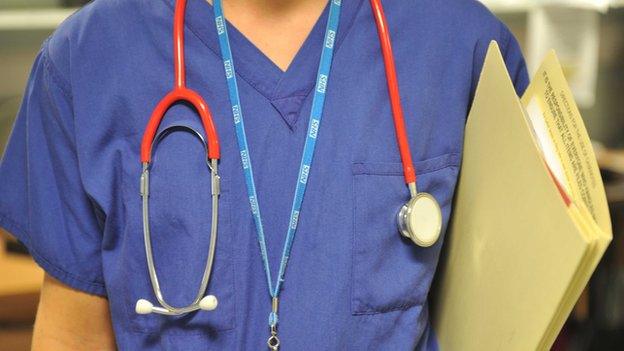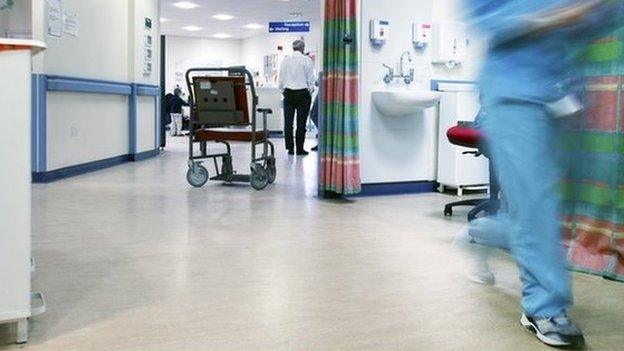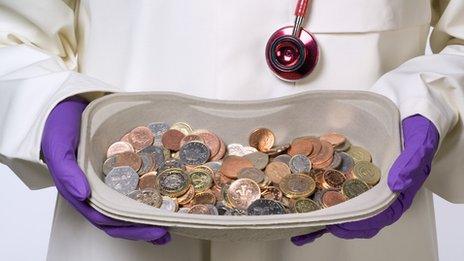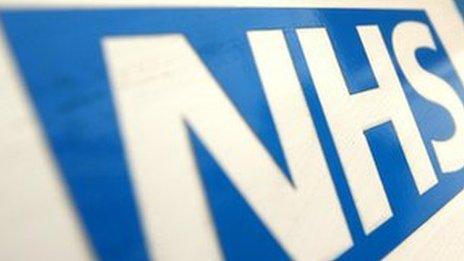Hospitals and NHS bosses at loggerheads over funding
- Published

A row has broken out about the system for giving NHS hospitals in England their income.
Hospital chiefs have rejected plans for next year's payment system, warning that safe care could not be guaranteed under what was being proposed.
Much of a hospital's funding comes from a set of tariffs that rewards them per patient treated.
NHS bosses had proposed a cut of just under 4% - once inflation is taken into account - as part of a savings drive.
The dispute does not affect services, but is a sign of the mounting pressure on the hospital sector.
Waiting-time targets are already being missed for A&E, cancer and routine operations and at the halfway point of the 2014-15 tax year, the NHS was £630m overspent.
'Safe care'
NHS Providers, which represents hospital trusts, said it was the fifth year of cuts to the payment system - and hospitals could no longer cope.
Chris Hopson, chief executive of NHS Providers, said the decision to reject the proposals had "not been taken lightly", but 80% of hospitals were now in deficit.
"It is a clear response from the front line that they can no longer guarantee sustainable and safe care," he added.
The dispute may now have to be considered by the Competition and Markets Authority - the first time such a move has happened since the system changed under the Health and Social Care Act.
If it is not resolved by April, it will mean the payment rates for this year are carried over. As they are more generous, that would put even more pressure on budgets.
NHS England, which is in charge of the payment system along with Monitor, the economic regulator for the NHS, said changing the plans would be "robbing Peter to pay Paul".
The reduction in the tariff had been proposed to free up more money for services outside of hospitals as part of the push to move care into the community.
- Published26 November 2014

- Published10 July 2014

- Published7 July 2014

- Published29 June 2014

- Published18 June 2014

- Published1 April 2014
